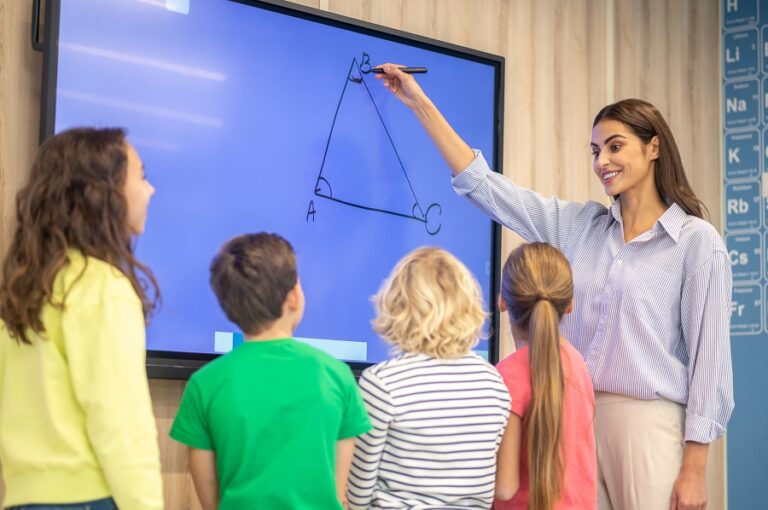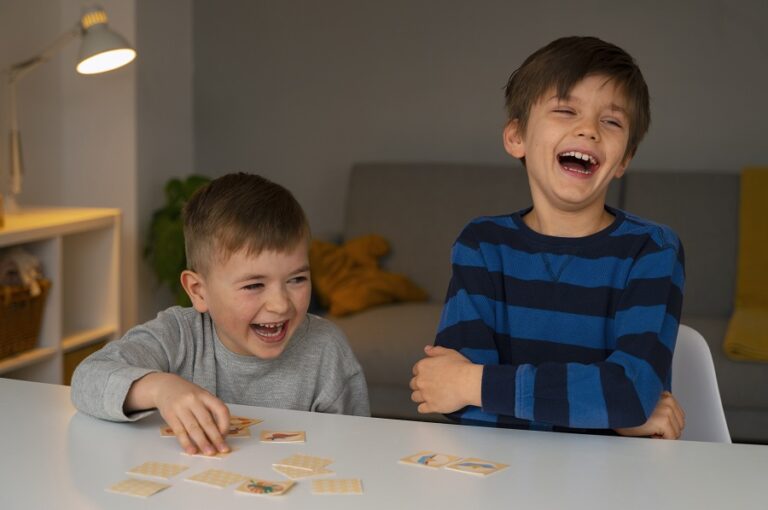How Video Games Can Boost Problem-Solving Skills in Children
In today’s digital age, video games are a major part of many children’s lives. While they are often seen as a form of entertainment, research and real-world experiences show that video games can also offer cognitive benefits. One of the most valuable skills children can gain from playing video games is problem-solving. When used appropriately and in moderation, video games can significantly enhance a child’s ability to think critically, make decisions, and solve complex problems. In this article, we’ll explore how video games help boost problem-solving skills in children and why they can be a beneficial part of learning and development.
Understanding Problem-Solving in Games
Problem-solving is the ability to identify a problem, analyze the situation, come up with possible solutions, and implement the best one. Many video games are built around this very concept. Players are frequently presented with challenges they must overcome by thinking logically, planning their actions, and learning from their mistakes. Whether it’s solving a puzzle, navigating a maze, or strategizing in a competitive match, video games require children to apply problem-solving skills throughout the gameplay.
Types of Video Games That Encourage Problem-Solving
Not all games are created equal. Some video games are more beneficial for developing problem-solving skills than others. The types of games that typically offer the best problem-solving opportunities include:
- Puzzle Games
Games like Portal, Monument Valley, and Cut the Rope require players to use logic and creativity to solve progressively harder challenges. - Strategy Games
Games such as Age of Empires, Clash of Clans, and Civilization demand long-term planning, resource management, and adaptability to different scenarios. - Adventure and Role-Playing Games (RPGs)
In games like The Legend of Zelda, Minecraft, or Pokémon, players explore open worlds, complete quests, and make decisions that affect the storyline. - Simulation and Building Games
Games like SimCity, RollerCoaster Tycoon, and Minecraft (in creative or survival mode) encourage players to design systems, manage problems, and build from scratch.
Ways Video Games Improve Problem-Solving Skills
Here are several ways video games can enhance problem-solving abilities in children:
1. Encouraging Logical Thinking
Video games often present logical puzzles that require step-by-step thinking. Players must analyze patterns, predict outcomes, and use deductive reasoning to succeed. For example, in puzzle games, children must arrange pieces or objects in specific orders to unlock the next stage.
2. Promoting Creative Solutions
Many games allow players to tackle challenges in multiple ways. This encourages creativity and thinking outside the box. In sandbox games like Minecraft, children can build and experiment freely, learning how to solve design or survival problems through trial and error.
3. Teaching Strategic Planning
Strategy games help children learn the value of planning ahead. Players must consider their next moves, manage limited resources, and anticipate opponent actions. This enhances foresight and decision-making under pressure.
4. Developing Persistence and Patience
Some levels or challenges in games are difficult and require repeated attempts to complete. This teaches children the importance of persistence, learning from failure, and adjusting their approach. It builds resilience and determination in real-world situations.
5. Enhancing Multitasking and Attention Management
Many games involve managing multiple goals or monitoring various elements on the screen at once. Children learn to prioritize tasks, switch attention effectively, and manage several problems simultaneously.
6. Improving Memory and Pattern Recognition
Video games often require players to remember paths, patterns, or rules. This improves working memory and the ability to identify and apply solutions based on experience.
Examples of Educational and Problem-Solving Games for Children
- Minecraft (Education Edition): Teaches logic, collaboration, and creativity through building and exploring.
- Thinkrolls: A fun logic and physics puzzle game for younger children.
- Lightbot: Introduces programming logic and sequencing in a simple game format.
- Zoombinis: Encourages pattern recognition, sequencing, and deductive logic.
- Portal 2: A puzzle-platformer that enhances spatial awareness and problem-solving through physics-based challenges.
The Science Behind It
Several studies support the idea that video games can positively impact cognitive development. A study published in the journal Nature found that children who played strategy-based video games showed improvement in problem-solving skills, memory, and cognitive flexibility. Another research study by the University of Glasgow revealed that regular gaming helped students develop essential graduate attributes, including communication, adaptability, and resourcefulness.
How Parents Can Support Healthy Gaming
While video games can be beneficial, moderation and guidance are key. Here are some tips for parents:
- Choose age-appropriate games with educational or strategic elements
- Set clear time limits for gaming sessions
- Encourage discussion about the game’s challenges and how the child overcame them
- Play with your child occasionally to understand their thought process
- Balance gaming with physical activity and offline learning experiences
Conclusion
Video games, when chosen wisely and played in moderation, can be powerful tools for developing problem-solving skills in children. They provide opportunities to think critically, analyze situations, adapt strategies, and learn from mistakes in a fun and engaging way. In a world where problem-solving is a key skill for future success, these games offer much more than just entertainment.
By encouraging thoughtful gameplay and providing the right support, parents and educators can turn screen time into skill-building time. With the right approach, video games can play a valuable role in helping children become confident, creative, and capable problem-solvers.






